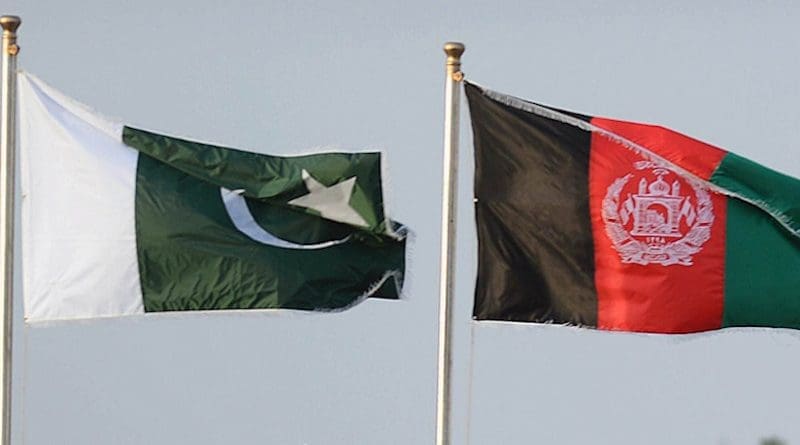Pakistan Committed To Host Afghan Refugees With Dignity And Honor – OpEd
By Sara Nazir
Pakistan has secured the title for hosting the largest population of refugees. Over the past four decades, the Pakistani government has offered millions of Afghan refugees protection and asylum. The assistance provided to the refugees highlights Pakistanis’ warmth, friendliness, and sympathy for their Afghan neighbors and brothers. Pakistani government over the decades not only welcomed the Afghani people but also give them a chance to grow independently, to get an education, to start a business and to move freely across the country like the citizens of Pakistan, despite being involved in suspected activities.
In Afghanistan, major countries are competing to maintain the existing quo. However, because of the enormous power competition, Afghan individuals suffer greatly. The engagement of other regional players in Afghanistan has exacerbated the country’s regulatory frameworks and impacted the already struggling Afghan economy. This tendency is detrimental to not just the Afghan nation but also those in the surrounding countries.
A refugee’s predicament is generally carried on by human rights violations. Since several refugees are departing their native countries as their basic beliefs and rights are being violated. Billions of Afghans were compelled to flee to neighbors including Pakistan and Iran when the turmoil in their country broke out in late 1970. Between 200,000 and 300,000 unregistered Afghan refugees are reported to be residing in Pakistan. The majority of such a massive humanitarian burden falls on Pakistan. Afghan refugees who are documented with the United Nations High Commissioner for Refugees (UNHCR) are often given an unlimited number of interim residency permits by Pakistan’s Ministry of States and Frontier Regions (SAFRON) Pakistan. Afghan refugees under UNHCR protection may remain in Pakistan as far as their status is consistent with Pakistan’s government’s official policy.
Pakistan has set the tradition by serving Afghan refugees for more than 40 years. The majority of the refugees living in Pakistan are Afghani people and some of them who are non-Afghani belong to Syria, Somalia, Myanmar and Yemen. The government of Pakistan along with UNCHR had initiated a project to facilitate the Afghan refugees living in Pakistan and make them able to stand on their feet. UNCR has supported the initiative undertaken by the government of Pakistan to strengthen the cohesion in host communities. The project was started in 2006 with the registration process of Afghans exercises first by providing them Proof of Registration Cards (PoR). The basic purpose behind this initiation was to facilitate Afghan refugees to get the fundamental facilities across the country by providing them with an efficient databank for their identities. On the other hand, the government of Pakistan has provided the basic training and skills to start their own business at their own by allowing them to open bank accounts to save their earnings.
The government of Pakistan had faced numerous challenges in hosting such a big refugee population in form of infrastructure, food, security and economics. But despite all the challenges Pakistan has to allow them to get free basic education, free medical services, subsidized food and non-food goods, water, energy, possibilities for employment, and other important services by providing them their identification and registration cards. And most recently, Pakistan faced a climate crisis in the form of floods across the country in which nearly 33 million people were affected by floods in Pakistan. In such a challenging situation where the government was unable to rescue their people, they still, work equally for their citizens and Afghan refugees. In the first week of February, UNCHR in a collaboration with the Pakistan government launched a one-time cash scheme for Afghani families who have devastatingly affected by the recent floods of 2022.
The Minister of SAFRON, Muhammad Talha Mahmood, commended continuous international assistance for Afghan refugees.
“For more than 40 years, we have compassionately helped Afghan refugees in our nation. We are steadfast in our commitment to helping, despite the difficulties we confront. However, we are unable to do it alone, and we urgently want further international assistance under the global agreement to share responsibility for refugees established under the UN Refugee Compact”.
Pakistan has provided safety to millions of people who were forced to leave their country. The governments of Pakistan and Afghanistan had decided to provide conditions that encourage peaceful return and rehabilitation through a credible registration phase via regional and bilateral initiatives. Both countries had discovered locations for secure and respectable returns using this strategy. Pakistan has provided shelter for Afghan refugees for the last forty years. It has one of the oldest and greatest caseloads of refugees ever. Pakistan may take advantage of this manageable burden and dig into this potential to turn them into committed volunteers who represent Pakistan in Afghanistan as goodwill ambassadors. In this scenario, both Pakistan and Afghanistan will gain from the situation, and Pakistan will also be able to broaden its connections with Afghanistan. The ultimate goal is to create a good atmosphere for these two neighbors.
The secure and safe return of Afghan refugees to their homeland is the duty of the Afghan government and the world community. The international community praised Pakistan because of its sympathy for Afghan refugees. Pakistan had played its share to assist the Afghan people, who were in need. However, given that they are financially susceptible for both Pakistan and their nation, it is now the ideal moment for the Afghan government to accept back their refugees.
The author has done MS in Strategic Studies from Air University Islamabad and currently teaching as visiting faculty in Islamic International University Islamabad. She writes on South Asian security and strategic issues.

